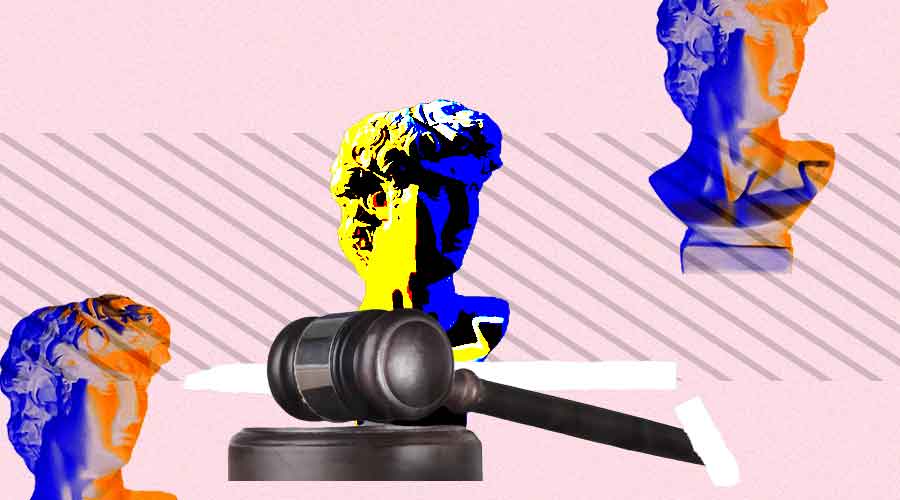 In this article we try and understand the regulatory landscape of NFTs in India.
In this article we try and understand the regulatory landscape of NFTs in India.
Using blockchain technology, non-fungible tokens (NFTs) are distinct digital assets that signify ownership or provide evidence of the legitimacy of a certain good or piece of information. Every NFT is unique from all other tokens due to its unique features, unlike fungible crypto assets like Bitcoin or Ethereum, which can be traded one-to-one.
Non-Fungible Tokens (NFTs) have completely changed how we view and exchange digital assets in the last few years, taking the digital world by storm. NFTs, or unique cryptographic tokens, signify ownership of digital or physical goods, and they have created new opportunities for inventors, performers, and artists to make money online. But innovation often brings with it obstacles, and the NFT area is no different.
Although investors and creators are drawn to NFTs because they are a distinct asset class with a wide range of income opportunities, firms must exercise caution in order to deal with the regulatory problems that lie ahead. Although NFT trading is connected to the larger cryptocurrency market, it is subject to laws in several jurisdictions, requiring players to handle difficulties with intellectual property ownership, copyright, privacy, security, and AML compliance. The following are some significant legal ramifications for NFTs:
Law in General: When the RBI urged banks not to engage in cryptocurrencies in June 2018, the legality of cryptocurrencies became more contentious in India. Subsequently, the Supreme Court reversed this order, highlighting the constitutional freedom to commerce as a basic one.
Securities legislation: Not having a specific regulatory framework for NFTs, trading NFTs under the Securities Contract Regulation Act, 1956 (“SCRA”) is not entirely lawful. NFTs may be considered derivatives under SCRA, which would make trading on virtual platforms prohibited.
The Copyrights Act: The customer does not instantly get copyright to the underlying art upon purchasing an NFT. For clear copyright assignment, a formal sale contract is required per Section 19 of the Copyright Act. Only the owner is granted reproduction and distribution rights under Section 14, and the buyer must prove ownership through an express transfer.
Tax Laws: The underlying asset determines how NFTs are treated tax-wise; for example, NFTs pertaining to digital art may be regarded as intangible assets. The 30% government tax on virtual assets, which includes NFTs, may have an effect on their market value. New tax issues arising from cross-border NFT transactions include a 2% equalization charge on sales made by foreign vendors to Indian purchasers.
FEMA Guidelines: Under the Foreign Exchange Management Act (FEMA) and its rules, treatment is determined by the categorization of the underlying asset. Because of their support for global ledgers, NFTs may be classified as “intangible assets” under FEMA laws, which raises concerns regarding their location.
Plans for Collective Investments: NFTs that are primarily used to acquire, retain, and sell assets might be categorized as exchange or utility tokens. A collective investment undertaking license and SEBI registration may be needed for the issuance of NFTs that meet the requirements to be units of a Collective Investment Scheme (CIS).
Participants in the Non-Fungible Token (NFT) market should be aware of the unique collection of legal concerns associated with the continued popularity of NFTs. These risks are related to a number of different things, such as intellectual property, contracts, regulatory compliance, and more. An outline of the legal dangers connected to NFTs is provided below:
- Unauthorized tokenization of work protected by copyright without the required license or ownership rights is known as copyright infringement.
- Regulatory Compliance: Possible infractions of current tax laws, money laundering laws, and securities laws.
- Intellectual property disputes: Conflicts involving the rightful owner and veracity of digital assets, particularly when those works are tokenized without the required permission.
- Privacy Concerns: Insufficient security of personal data related to NFT transactions raises privacy concerns.
- Security Risks: User assets might be compromised by hackers or unauthorized access to NFT platforms and markets.
- Contractual Ambiguities: When terms and circumstances of NFT transactions are unclear or ambiguous, it might cause problems.
- Anti-Money Laundering (AML) Concerns: Because NFT transactions are pseudonymous, they are used as a cover for money laundering operations.




